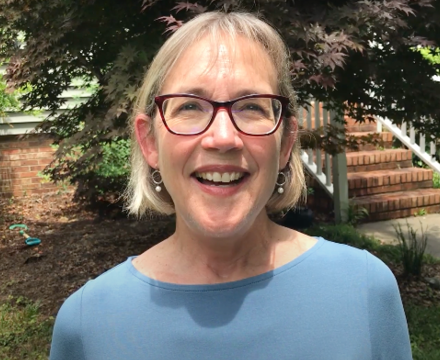Owen Cordle (1945-2022)

We liked to describe him as “an engineer by day and jazz cat by night.”
Jazz musician and writer Owen Cordle died on January 20, 2022 at age 76. NC State LIVE audience members knew him as the soft-spoken host of jazz concert pre-show talks for over 20 years.
A 1968 graduate of the NC State College of Engineering – who had a 45-year career as a civil engineer in the North Carolina Department of Transportation – Cordle was a fixture of the jazz community both locally and nationally. He wrote about jazz for The News & Observer for decades, reviewed albums for JazzTimes, was a longtime voting member of the benchmark DownBeat Critics Poll, and performed with multiple ensembles, including The Moonlighters and the Raleigh Jazz Orchestra.
“Owen was a sweetheart to work with,” says Sharon Moore, director of the NC State LIVE series. “He was one of our earliest pre-show speakers. Owen had an encyclopedic knowledge of jazz and could gently connect the dots of jazz history, explaining connections and influences from one jazz generation to another. He made a performance a lot more meaningful for an audience member.”
In February 2009, writer Matt Shipman interviewed Cordle for an article in Bulletin, the NC State news source for faculty and staff. Note: Center Stage is the former name of the NC State LIVE series.
Unlocking the Mysteries of Jazz
BY MATT SHIPMAN
Originally published February 19, 2009
From Dixieland to bebop to fusion, the subject of jazz covers a wide variety of sounds and styles that can intimidate a beginner. Even longtime jazz fans are constantly running across artists and albums that they’re unfamiliar with. Helping people understand the music and history of jazz is one reason Owen Cordle, NC State alum and longtime jazz columnist, hosts public discussions on jazz before concerts as part of the Arts NC State Center Stage program.
Cordle will be kicking off his first jazz discussion for 2009 at the Talley Student Center prior to a Feb. 24 concert by Japanese pianist Hiromi Uehara, continuing his longstanding relationship with NC State, jazz and the Raleigh community. Cordle has an encyclopedic knowledge of jazz music and history garnered from a lifelong love of the art form. He has been playing jazz in the Raleigh area for more than 40 years, and writing about it for almost as long.
“I’ve always liked jazz,” Cordle says, “I picked up the clarinet in fourth grade, started playing the tenor saxophone in high school, and never stopped.” And the Raleigh native didn’t wait long to take the stage. Cordle started performing with Leon Jordan’s Continentals while still in high school and continued playing with them during his time at NC State.
“I had a great time at NC State,” Cordle says, noting that he made the most of his time as a student by playing with both the Wolfpack marching and pep bands. Cordle says he was fortunate enough to play under Don Adcock, who led both bands. In fact, Cordle says, “All through high school and college, all of my band directors were jazz fans and jazz players, and the institutions they represented condoned jazz. Not all band directors and schools were as hip.”
Cordle graduated from NC State in January 1968 with a B.S. in geological engineering, and currently works for the NC Department of Transportation. But in 1970 he embarked on a second career as a jazz writer when former News & Observer entertainment reporter Bill Morrison published an essay by Cordle on the growing popularity of the soprano saxophone. By 1980 Cordle was a regular jazz columnist for the N&O, and the mid-1980s found him also contributing to the well-regarded JazzTimes and DownBeat magazines. All the while, Cordle continued to play. From 1969 to 1975 Cordle played saxophone for the NC National Guard band, and he currently plays with Charlie Chiklis and the Moonlighters and the Raleigh Jazz Orchestra.
Cordle calls on his experiences as a musician and jazz reporter to facilitate the public discussions that he has been leading before Center Stage jazz concerts for more than 15 years. Cordle explains that there is no “typical” format for the discussions, and that they often include listening to music, talking about an artist’s background and musical traits, etc. “I want to help people key in to what’s going on” with a particular artist,” Cordle says.
“I never want to stop playing,” Cordle adds. “I’m still trying to improve, still trying to learn more and get better.”
If you are interested in this uniquely American musical style, but don’t know where to begin, you might want to start by talking with this lifelong student of jazz.
- Categories:
